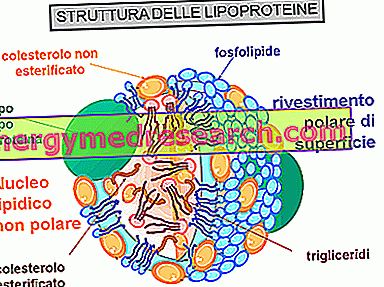
What is Ofev and what is it used for - nintedanib?
Ofev is a medicine used in adults for the treatment of idiopathic pulmonary fibrosis (IPF). IPF is a chronic disease that causes continuous formation of fibrous connective tissue in the lungs, which in turn is responsible for persistent coughing and very difficult breathing. The term "idiopathic" means that the cause of the disease is not known. Because the number of patients with IPF is low, the disease is considered 'rare' and Ofev was designated an 'orphan medicine' (a medicine used in rare diseases) on 26 April 2013. Ofev contains the active substance nintedanib .
How is Ofev used - nintedanib?
Ofev can only be obtained with a prescription and treatment should be started by a doctor experienced in the diagnosis and treatment of IPF. Ofev is available in capsules (100 mg and 150 mg). The recommended dose is 150 mg twice a day, given during meals around 12 hours apart. In patients who do not tolerate this dose, the dose may be reduced to 100 mg twice a day or treatment should be stopped. For more information, see the package leaflet.
How does Ofev - nintedanib work?
The active substance in Ofev, nintedanib, blocks the activity of some enzymes known as tyrosine kinases. These enzymes are present in certain receptors (including VEGF, FGF and PDGF receptors) in lung cells, where they activate certain processes involved in the production of fibrous tissue observed in IPF. By blocking these enzymes, nintedanib helps reduce the formation of fibrous tissue in the lungs, helping to prevent a worsening of IPF symptoms.
What benefit has Ofev - nintedanib shown during the studies?
Ofev was compared with a placebo (a dummy treatment) in two main studies involving a total of 1, 066 subjects with IPF. In both studies the main measure of effectiveness was the worsening of patients' lung function during a 1-year treatment period, measured by "forced vital capacity" (FVC). FVC is the total volume of air that the patient is able to exhale forcibly after a deep inhalation and decreases with the worsening of the condition. In both studies, patients taking Ofev showed a lower reduction in FVC compared to subjects treated with placebo, which shows that Ofev slowed the worsening of the condition. The average FVC of the patients before the beginning of the therapy was between 2 600 and 2 700 milliliters (ml). In the first study, the average FVC reduction in 1 year was 115 ml in patients taking Ofev compared to a reduction of 240 ml in placebo-treated subjects. In the second study, the mean reduction was 114 ml with Ofev compared to 207 ml with placebo. A further analysis of the results of the 2 main studies, which took into account the patients who discontinued the therapy, confirmed the benefits of Ofev compared to placebo, despite the difference in FVC between the two treatments was less pronounced.
What is the risk associated with Ofev - nintedanib?
The most common side effects of Ofev (which may affect more than 1 in 10 people) are diarrhea, nausea, abdominal pain (stomach ache) and increased levels of liver enzymes in the blood (a sign of hepatic distress); vomiting, decreased appetite and weight loss are also common. For the full list of all side effects reported with Ofev, see the package leaflet. Ofev must not be used in people who may be hypersensitive (allergic) to nintedanib, peanut or soy, or any of the other ingredients.
Why has Ofev - nintedanib been approved?
The Agency's Committee for Medicinal Products for Human Use (CHMP) decided that Ofev's benefits are greater than its risks and recommended that it be approved for use in the EU. The CHMP has taken into account that Ofev has been shown to be effective in slowing down the worsening of lung function in patients with IPF. As for safety, side effects associated with Ofev are considered manageable with interruptions or dose reductions.
What measures are being taken to ensure the safe and effective use of Ofev - nintedanib?
A risk management plan has been developed to ensure that Ofev is used as safely as possible. Based on this plan, safety information has been included in the summary of product characteristics and the package leaflet of Ofev, including the appropriate precautions to be followed by healthcare professionals and patients.
More information about Ofev - nintedanib
On 15 January 2015, the European Commission issued a marketing authorization for Ofev, valid throughout the European Union. For more information about treatment with Ofev, read the package leaflet (also part of the EPAR) or contact your doctor or pharmacist. The summary of the opinion of the Committee for Orphan Medicinal Products related to Ofev is available on the Agency's website: ema.Europa.eu/Find medicine / Human medicines / Rare disease designation. Last update of this summary: 01-2015.



